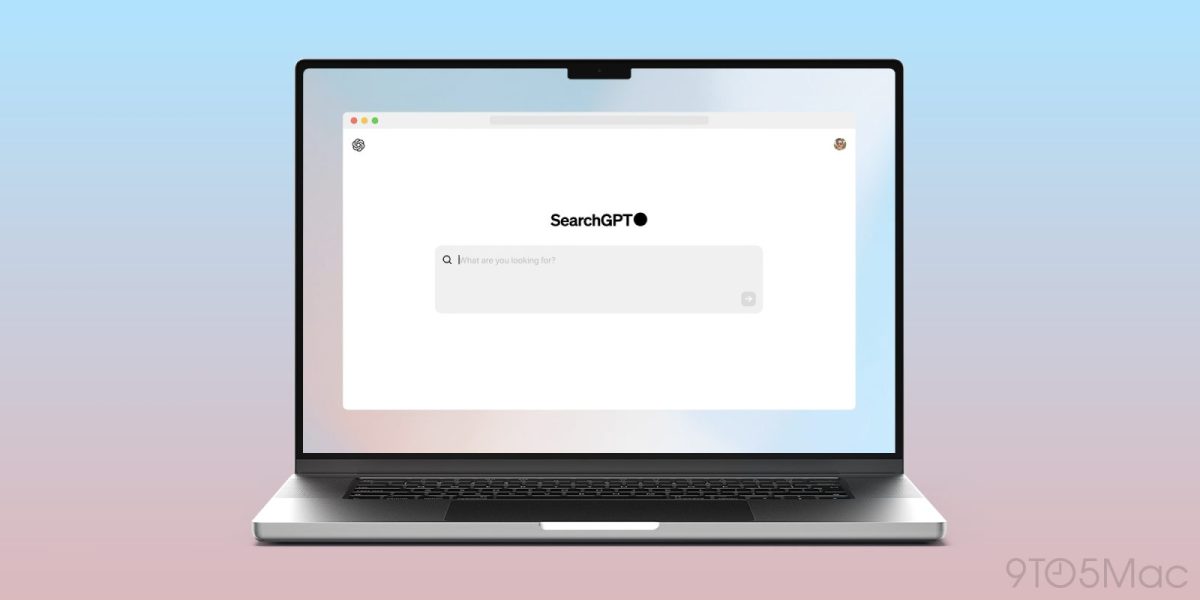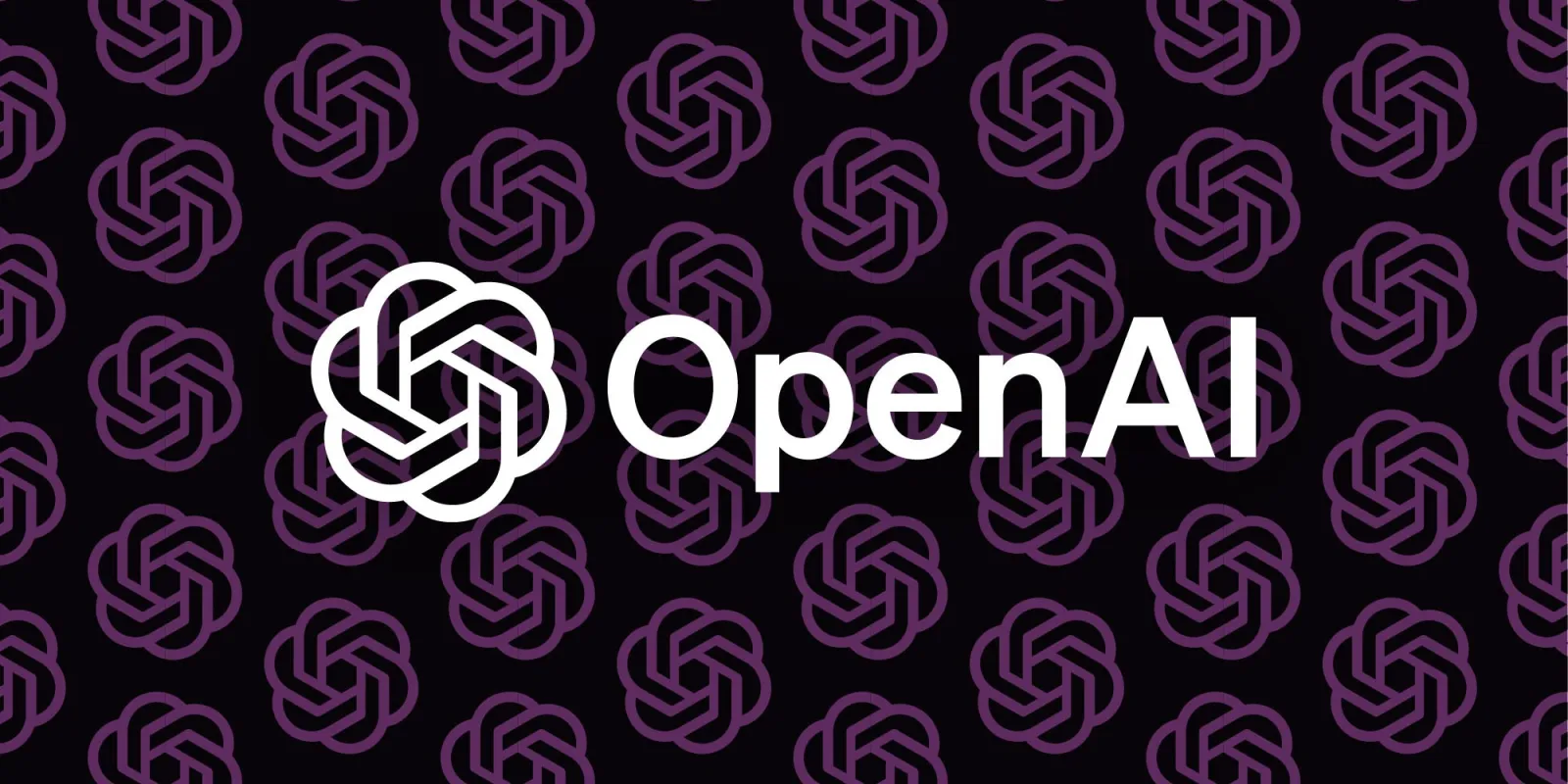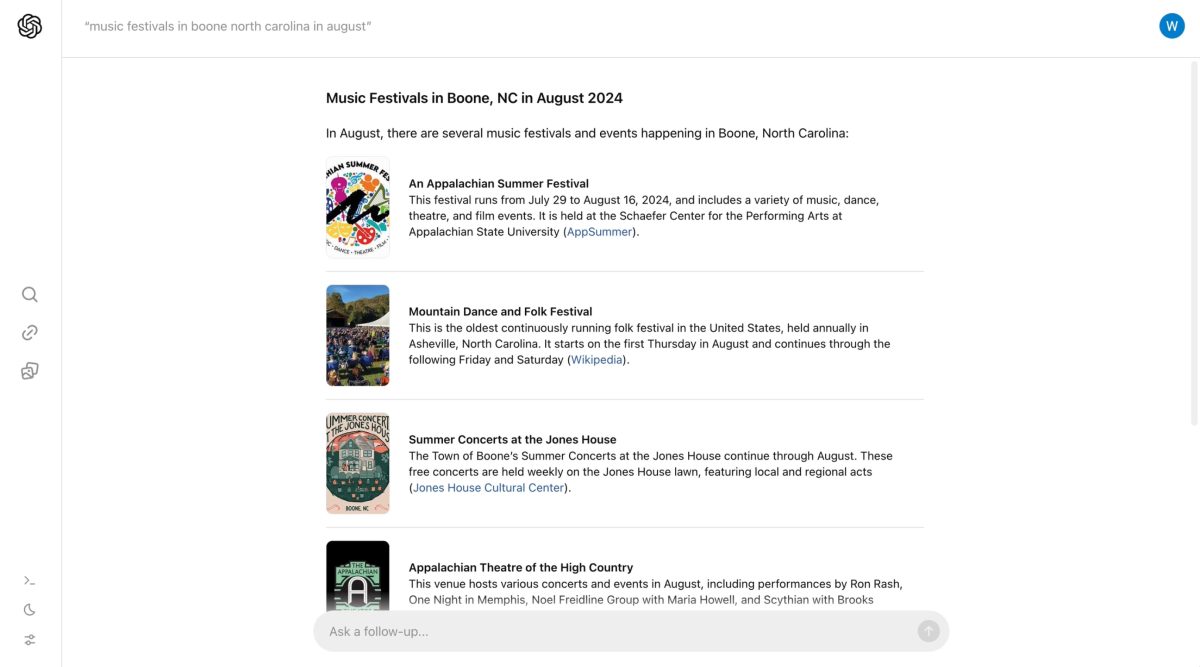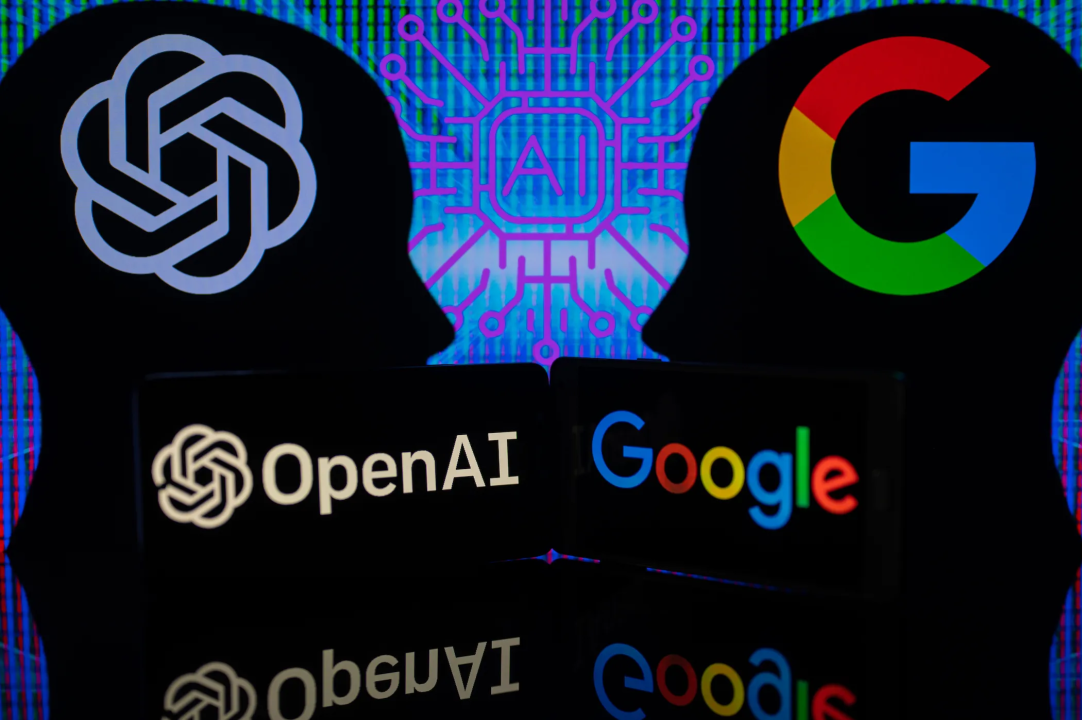Highlights
- SearchGPT offers real-time answers with source links and photos.
- Utilizes AI models GPT-3.5, GPT-4, and GPT-4o for accurate results.
- Incorporates user location for enhanced search accuracy.
- Emphasizes responsible deployment with clear attribution and publisher collaboration.
OpenAI, the company behind ChatGPT, has entered the search engine arena with the launch of SearchGPT.

This new feature aims to provide “timely answers” to questions by drawing from web sources, potentially challenging established players like Google and Bing, as well as AI-powered search upstarts like Perplexity.
Features of SearchGPT

• User Interface: Similar to ChatGPT, users type queries and receive information and photos from the web, along with source links.
• Follow-up Capability: Users can ask follow-up questions or explore related searches in a sidebar.
• Location-Aware: Some searches take into account the user’s general location to improve result accuracy.
• AI-Powered: Utilizes OpenAI models GPT-3.5, GPT-4, and GPT-4o.
OpenAI describes SearchGPT as a prototype, initially available to “a small group” of users and publishers.
The company plans to integrate some of its features into ChatGPT in the future.
Addressing Concerns and Challenges

“Getting answers on the web can take a lot of effort, often requiring multiple attempts to get relevant results,” OpenAI writes in a blog post. “We believe that by enhancing the conversational capabilities of our models with real-time information from the web, finding what you’re looking for can be faster and easier.”
The launch of SearchGPT comes at a time when AI-powered search tools are facing criticism for issues such as:
• Plagiarism
• Inaccuracies
• Content cannibalism
To address these concerns, OpenAI is positioning SearchGPT as a more responsible deployment:
• Attribution: SearchGPT “prominently cites and links” to publishers with “clear, in-line, named attribution.”
• Publisher Collaboration: OpenAI is working with publishers to design the experience and provide ways for website owners to manage how their content appears in search results.
• Content Separation: The company emphasizes that SearchGPT is separate from training OpenAI’s generative AI foundation models.
“We believe that by enhancing the conversational capabilities of our models with real-time information from the web, finding what you’re looking for can be faster and easier,” OpenAI states in their blog post.
Potential Impact on Publishers
AI-generated search overviews have raised concerns about their impact on publisher traffic.

A study suggests that similar features, like Google’s AI Overviews, could negatively affect about 25% of publisher traffic due to de-emphasis on article links.
OpenAI’s approach aims to mitigate these concerns by working closely with publishers and providing content management options.
However, given the company’s history of data collection practices, some skepticism remains about their commitment to a “thriving ecosystem of publishers and creators.”
SearchGPT is being released to a restricted audience; its effectiveness and effects on the search environment remain to be evaluated.
Competitors, publishers, and users will all be eagerly watching the prototype’s development and reaction.
OpenAI’s foray into the search business with SearchGPT marks a fundamental shift in the growing AI-powered internet ecosystem.
While the firm pledges a more responsible and publisher-friendly strategy, the ultimate test will be its implementation and the reactions of both consumers and content providers.
FAQs
What is SearchGPT and who created it?
SearchGPT is an AI-powered search feature launched by OpenAI, designed to provide timely answers by drawing from web sources.
How does SearchGPT improve search accuracy?
SearchGPT uses OpenAI models GPT-3.5, GPT-4, and GPT-4o, and takes into account the user’s general location to enhance search result accuracy.
What measures does SearchGPT take to address concerns about plagiarism and inaccuracies?
SearchGPT prominently cites and links to publishers with clear, in-line attribution and collaborates with publishers to manage content appearance.
How does SearchGPT handle follow-up questions and related searches?
Users can ask follow-up questions and explore related searches in a sidebar, providing a seamless and interactive search experience.
What is the potential impact of SearchGPT on publisher traffic?
OpenAI aims to mitigate negative impacts on publisher traffic by providing content management options and working closely with publishers, although some skepticism remains.
Also Read: Meta Announces New Privacy Controls for EU Users: Unlinking Facebook, Instagram, and WhatsApp
Also Read: ChatGPT 4 Can Now Identify and Describe Faces, Raising Concerns About AI’s Power
